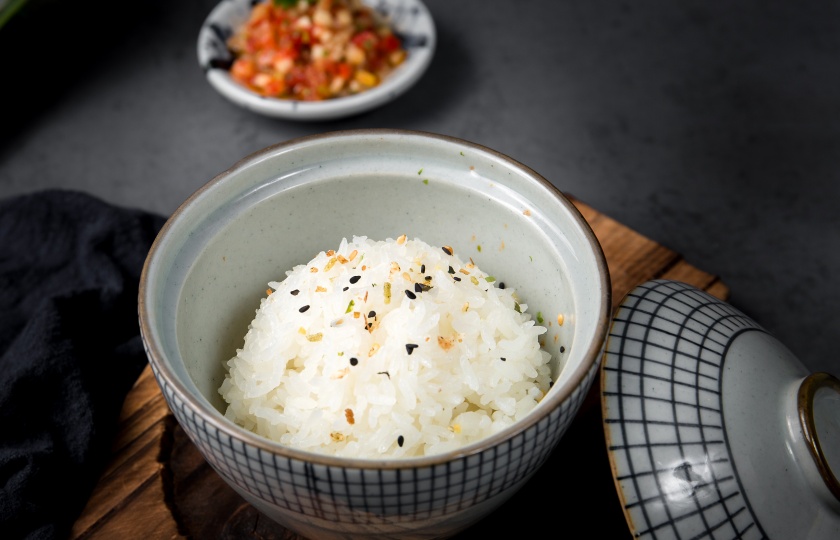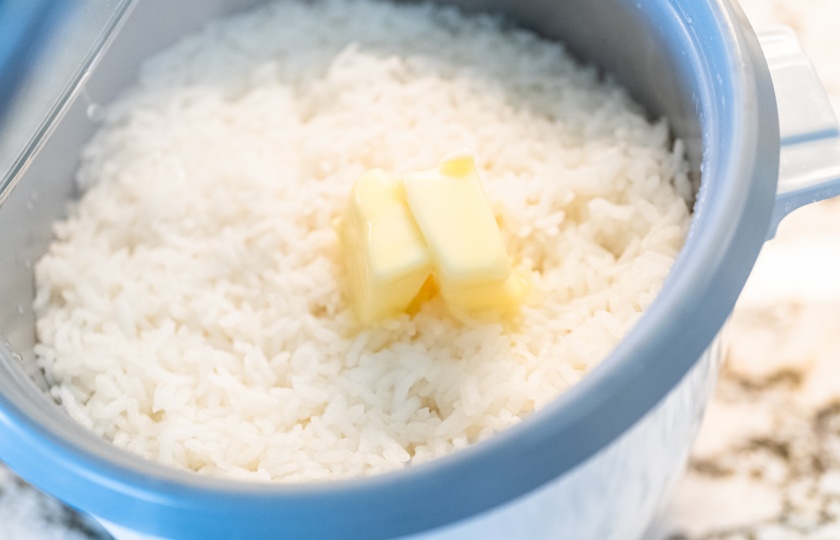Best Method: Can I Cook Rice In Bone Broth

Cooking rice in bone broth is both simple and delicious. From choosing the right broth to mastering the perfect liquid-to-rice ratio, let's learn how to make a pot of fragrant, delicious rice.
Can I replace water with bone broth for cooking rice?
Using bone broth instead of water to cook rice can indeed make the rice more fragrant. I sometimes do this too. Here are some key points to share with you:
The ratio of bone broth to rice is very important. Don't just pour it in according to the usual amount of water. Since bone broth itself contains oil and gelatin, it is recommended to start with a 1:1 ratio (for example, one cup of rice with one cup of broth). If the cooked rice is on the firm side, add an extra half - spoonful of broth next time.
Pay attention to the saltiness of the broth. If you buy ready - made bone broth that is quite salty, you can mix it with an equal amount of plain water. For bone broth that you make without adding salt, add a little salt when cooking the rice.
Before cooking, mix the cold bone broth and rice evenly and soak for 15 minutes. This way, the rice grains can better absorb the umami of the broth.
Just use the normal rice - cooking mode of the rice cooker. After it switches off, let it sit for an additional 10 minutes. Then, when you open it, fluff the rice with chopsticks. The moist and crispy part at the bottom of the rice is especially delicious.
What type of rice works best with broth?
Short - grain rice: Japanese pearl rice is the most suitable. The grains are round and plump. After cooking, it has a moderate stickiness and can hold onto the fragrance of the broth well. When making tea - soaked rice or risotto, it doesn't fall apart easily.
Regular medium - grain rice: The common white rice in supermarkets is a versatile type. It absorbs the broth evenly, has a soft and glutinous texture but is not overly sticky. It is the safest choice when paired with ribs broth or chicken broth in daily life.
Glutinous rice varieties: You can try something different once in a while. For example, cook a mixture of purple rice and white rice (in a 1:3 ratio) with chicken broth. It is sticky and chewy. It smells particularly delicious when paired with mushrooms and Chinese sausage.
Note that you should avoid using brown rice or wholegrain rice. They require more water and a longer cooking time. When paired with meat broth, they are prone to being undercooked. If you only have long - grain rice on hand and still want to cook with broth, you can soak the rice in advance for 30 minutes. When cooking, add three extra spoonfuls of bone broth compared to the usual amount of water.

What's the perfect ratio of bone broth to rice?
Short - grain rice (sushi rice): For every 1 cup of rice, use 1.2 cups of bone broth.
Medium - grain rice (regular white rice): For every 1 cup of rice, use 1.1 cups of bone broth.
Long - grain rice (Thai jasmine rice): For every 1 cup of rice, use 1.3 cups of bone broth.
It will be more refreshing if you remove the floating oil on the surface of the bone broth after refrigerating it before use. If the broth itself is very thick, such as pig's trotters broth, reduce the amount of broth by half a spoon according to the ratio. When making it for the first time, you can put the raw rice in a bowl and use a measuring cup to accurately measure the broth when pouring. After cooking, compare the firmness or softness and make fine adjustments next time.
How long to cook rice with bone broth?
The time to cook rice with bone broth is actually similar to that of cooking plain white rice. However, there are two things to note: the type of rice and the type of cooking pot.
If you are using an ordinary rice cooker and have 1 cup of rice with 1.25 cups of bone broth, after it automatically switches off when cooked, let it sit covered for another 10 minutes, and that would be just right.
When using a cast - iron pot or a casserole, bring it to a boil over medium heat and then turn it to the lowest heat. After 15 minutes, turn off the heat and let it sit covered for 10 minutes as well.
A pressure cooker is even faster. After it reaches full steam, turn off the heat after 6 minutes and let it release pressure naturally for 5 minutes.
Here is a small observing tip: When there are no longer dense bubbles coming out from the edge of the pot and only sporadic steam remains, it indicates that the moisture has been mostly absorbed. This is the most suitable time to turn off the heat. If you are using refrigerated bone broth, it is recommended to let it return to room temperature in advance to avoid over - softening the rice grains due to prolonged heating time.

What is the best liquid to cook rice in?
There isn't really an absolute best choice when it comes to the liquid for cooking rice.
The advantage of using plain water is that it can highlight the fragrance of the rice. It is suitable for pairing with strongly flavored dishes and is also the most commonly used liquid.
Bone broth or chicken broth will add a savory umami flavor and pair especially well with grilled meat or stews. If you like Southeast Asian flavors, replace one - third of the water with coconut milk. The cooked rice will have a faint sweet fragrance and is a perfect match for curry.
Those who prefer a fresh taste can try coconut water or coconut milk. They go particularly well with Southeast Asian - style turmeric rice.
A rather special option is to use tea. For example, cooking white rice with jasmine tea is suitable for pairing with light steamed fish. However, you need to pay attention to the concentration. After steeping a tea bag, mix it with an equal amount of water. Otherwise, it may taste bitter.
Should I add salt when cooking rice in broth?
If you are using commercially packaged bone broth, it is usually already seasoned, so you don't need to add salt when cooking rice.
For homemade unsalted bone broth, you can taste it before putting the rice and broth into the pot. It should be a bit lighter than the soup you usually drink, because the saltiness will become more concentrated as the water evaporates during the rice - cooking process.























